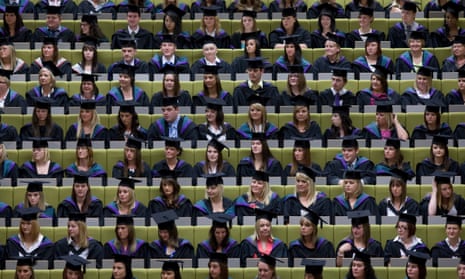England has the highest average undergraduate tuition fees in the industrialised world, although this investment tends to be repaid many times in higher graduate wages, according to an annual survey of education across more than 30 countries.
On average, English undergraduates paid just under £6,000 in annual tuition fees in the 2013-14 year, after the government’s decision to triple maximum fees, according to the Organisation for Economic Co-operation and Development (OECD).
The next highest was the US, with fees of about £5,300, followed by Japan on about £3,300, said the Paris-based organisation, which comprises 34 mainly prosperous countries.
The comparison applies for public universities only, which skews the figures for the US, where many leading universities are private.
Other findings within the 2015 edition of the OECD’s annual Education at a Glance report include that teachers’ starting salaries in England and Scotland are below the average for the bloc and among the lowest in Europe. Much of this is offset, however, by bonuses and allowances, which tend to boost salaries above the OECD average.
Throughout the profession, however, teaching salaries in England and Scotland are reversing in real terms, according to Andreas Schleicher, the OECD’s director of education and skills. “Pretty much for the first time in history, the last 10 years have not been so great for teachers in terms of getting more pay,” he said. “Scotland and England are actually going backwards in real terms when you look at the salary between 2005 and 2013.”
Also on schools, the report found the UK had among of the largest primary school classes, with an average of 27, against the OECD average of 21. Only China, Chile and Israel had bigger average primary classes. In contrast, UK secondary schools had an average of 20 pupils per teacher, below the OECD average of 24.
Schleicher said one “unusual” finding about UK primary schools was that teachers were given very little time for things beyond teaching, such as lesson preparation or professional development. “In most countries it goes the other way round,” he said. “Japan, Korea, China, have large classes but they use that resource to give teachers more time for other things than teaching.
“There’s a lot of effort in many countries to make the choice – give teachers more kids to teach but we use those resources to create a work environment where teachers have more room to sort of foster their profession as a whole, and that is where the UK is an exception, according to this data.”
The section on undergraduate fees notes a general move in recent years within the bloc towards such a solution to funding universities, with 14 of the 25 countries that had relevant information imposing tuition charges between 1995 and 2010. Since 2010, 10 states have changed their fee systems, mainly revising them upwards, notably the UK’s tripling of maximum annual fees to £9,000 in 2012.
While eight OECD countries have no tuition fees for full-time undergraduate students at public universities, in more than half of the other countries with relevant data, annual fees are £1,300 or more. This, however, is for people from the same country, with international students generally charged more.
The report stresses the long-term benefits of becoming a graduate, noting that these are notably less likely on average to be without a job. Throughout the OECD, graduates earn on average double over their lifetime than those whose highest education was secondary school, it finds.
If that was not enough, other tables show those who have had higher education tend to be both more physically healthy and more trusting of others than those who have not. However, the Sutton Trust, which campaigns on equal access to education, urged caution.
“This important international evidence shows that English students pay more for university than their counterparts elsewhere,” said its chair, Sir Peter Lampl. “While this has not yet reduced the numbers of poorer young students, it has seen a big fall in numbers of mature part-time students, an important group of access students too often forgotten.
“These figures should cause the government to avoid steps that could hamper access, including replacing grants for poorer students with loans leaving them more indebted than richer students, cutting widening participation funding, or reducing the independence of the access regulator.”

Comments (…)
Sign in or create your Guardian account to join the discussion